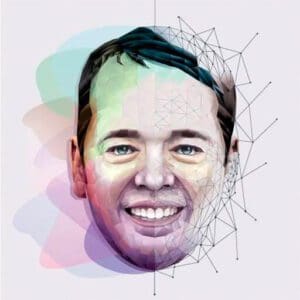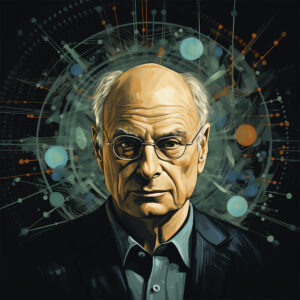Dan Ariely, a world-renowned expert in behavioral economics, has made significant contributions to the field of understanding human behavior. He is a professor of psychology and behavioral economics at Duke University and has authored several best-selling books on the subject. Ariely’s work has been widely recognized and has had a significant impact on various industries, including online marketing.
Behavioral economics is a branch of economics that combines psychology and economics to better understand human behavior and decision making. It challenges traditional economic theories that assume humans always make rational decisions and instead focuses on the reality of human behavior, which is often irrational and influenced by emotions, context, and other external factors.
Table of contents
- Key Takeaways
- Introduction
- Dan Ariely: The Man Behind Behavioral Economics
- The Truths of Behavioral Economics
- The Research of Dan Ariely and His Team
- The Impact of Dan Ariely’s Work
- Frequently Asked Questions
- Who is Dan Ariely and what led him to study behavioral economics?
- What is behavioral economics and how does it differ from traditional economics?
- What is the “fudge factor” and how does Dan Ariely use it to explain dishonesty?
- What are some other psycho-social factors that influence dishonesty, according to Dan Ariely?
- What is the “but-actually circuit” and why is Dan Ariely referred to as an “enigmatic swami” of this circuit?
- What is the impact of lying on the brain, according to Dan Ariely?
Key Takeaways
- Dan Ariely is a leading figure in the field of behavioral economics, which combines psychology and economics to understand human decision making.
- Ariely’s research has revealed that our expectations, emotions, and cognitive biases greatly influence our behavior and decision making, often in ways we are not aware of.
- The impact of Ariely’s work is far-reaching, from its use in marketing and business to challenging traditional economic theories. The future of behavioral economics and Ariely’s contributions are promising and continue to shape our understanding of human behavior.
Introduction
Dan Ariely’s interest in behavioral economics began during his recovery from a serious accident. Observing his own irrational behavior during the recovery process, he became fascinated with the intersection of psychology and economics. He went on to earn his Ph.D. in cognitive psychology from the University of North Carolina at Chapel Hill and has since become one of the leading experts in the field.
Through his research, Dan Ariely has uncovered many truths about human behavior that have challenged traditional economic theories. These include the influence of expectation on human behavior, the power of context in decision making, the role of emotions in financial decision making, and the impact of cognitive biases on our choices.
Ariely and his team have conducted numerous studies, including the famous electric shock experiment where they found that people would rather receive a mild electric shock than be alone with their thoughts. In the “Truth About Dishonesty” study, they found that the majority of people engage in some form of dishonest behavior. They also discovered that the culture of a company can have a significant impact on unethical behavior among its employees.
The research of Dan Ariely and his team has had a significant impact on various industries, including online marketing. By understanding the irrational tendencies of consumers, marketers can use behavioral economics principles to influence consumer behavior. Additionally, Ariely’s work has also been applied in business administration, influencing decision making and company culture.
Dan Ariely’s work has also challenged traditional economic theories and has led to a better understanding of human behavior. His research has been published in reputable journals such as the Journal of Economic Behavior and Organization and Organizational Behavior and Human Decision Processes and has been recognized by his peers in the field.
Dan Ariely: The Man Behind Behavioral Economics
Dan Ariely, a renowned professor and author, is the man behind the groundbreaking field of behavioral economics. Through his research, Ariely has provided valuable insights into human decision-making and irrational behavior. His experiments and studies have revealed that people often make choices that defy traditional economic theories, shedding light on the psychological factors that influence our decisions. These include social norms, emotions, and cognitive biases.
Ariely’s contributions have revolutionized the field of economics and have practical implications for a variety of domains, including marketing, public policy, and personal finance. His engaging writing and speaking style make complex theories accessible and engaging for a wide audience. If you’re interested in understanding the hidden forces that drive our choices, Dan Ariely’s work is a must-read.
Who is Dan Ariely?
Dan Ariely is a well-known figure in the realm of behavioral economics. He is a professor, author, and researcher renowned for his groundbreaking studies on human behavior and decision-making. Ariely’s work is centered around comprehending why individuals make irrational choices and how their behavior can be influenced by various factors. Through his experiments, he has shed light on the role of expectation, context, emotions, and cognitive biases in the decision-making process.
Ariely’s research has had a significant impact on various fields, including marketing, business administration, and traditional economics. He continues to push the boundaries of behavioral economics, uncovering new insights into human nature and decision-making.
What is Behavioral Economics?
Behavioral economics is a fascinating field that combines psychology and economics to gain insight into how individuals make economic decisions. It delves into the impact of cognitive, emotional, and social factors on decision making. Unlike traditional economics, which assumes rationality, behavioral economics acknowledges that people are often irrational and influenced by biases and heuristics. Its goal is to explain why individuals make certain choices and how these choices differ from what traditional economic theory predicts. By comprehending these deviations, policymakers and businesses can design interventions and strategies that steer individuals towards making better decisions.
In the 1970s, psychologists began to question the assumptions of traditional economics. One of the prominent figures in this movement was Daniel Kahneman, who received the Nobel Prize in Economics in 2002 for his work on behavioral economics. Kahneman’s research, along with that of other economists and psychologists, laid the foundation for the development of the field and its integration into mainstream economics. Today, behavioral economics continues to expand, with researchers like Dan Ariely making significant contributions to our understanding of human behavior and decision making.
How Did Dan Ariely Get Involved in Behavioral Economics?
Dan Ariely’s involvement in behavioral economics can be traced back to a life-changing event. Here is a brief list of steps outlining how Dan Ariely got involved in this field:
- Step 1: Experience – While recovering from severe burns sustained in an accident, Ariely observed the irrational behaviors of his fellow patients and became interested in understanding the underlying psychological factors.
- Step 2: Education – Ariely pursued a Ph.D. in cognitive psychology to delve deeper into the processes of human decision-making.
- Step 3: Research – Ariely conducted experiments to explore the irrationalities that influence human behavior, uncovering fascinating insights into the field of behavioral economics.
- Step 4: Publications – Ariely published influential books like “Predictably Irrational,” which popularized his research and made his work accessible to a wider audience.
- Step 5: Impact – Through his research, Ariely has made significant contributions to the field of behavioral economics and continues to shape its future.
Dan Ariely’s journey into behavioral economics is a testament to the power of personal experience and the curiosity to understand the complexities of human behavior.
The Truths of Behavioral Economics
In the world of economics, there is a growing field called behavioral economics that seeks to understand how human behavior and decision-making deviate from traditional economic theories. In this section, we will delve into the mind-bending truths of behavioral economics, as revealed by renowned economist Dan Ariely. From the influence of expectations on our actions to the role of emotions and cognitive biases in decision-making, we will uncover the fascinating insights that this field has to offer.
The Influence of Expectation on Human Behavior
The impact of expectation on human behavior is a crucial aspect of behavioral economics. Our expectations can greatly shape our perceptions, decisions, and actions. For instance, if we have high expectations for a product, we are more likely to perceive it as high quality and make a purchase. Dan Ariely, a prominent figure in behavioral economics, has conducted extensive research on the influence of expectation on various behaviors. His studies have revealed that expectations can have a significant impact on outcomes, emphasizing the importance of understanding and managing expectations in shaping human behavior. By acknowledging the power of expectation, we can gain a better understanding and prediction of human decision-making processes.
With Dan Ariely’s insights, we can finally stop blaming our bad decisions on being in the wrong place at the wrong time.
The Power of Context in Decision-Making
The power of context in decision-making is an important concept in behavioral economics. It highlights how our choices can be influenced by the environment in which we make them. For instance, research has demonstrated that individuals are more inclined to make unhealthy food choices when surrounded by unhealthy food options. This phenomenon is known as the “context effect.” Recognizing the influence of context can aid individuals and businesses in making better decisions by creating environments that encourage positive outcomes.
Pro-tip: Always be aware of your surroundings when making decisions, as the context can significantly impact your choices.
Forget logic, when it comes to money, it’s all about the feels and Dan Ariely knows it all too well.
The Role of Emotions in Financial Decision Making
Emotions play a significant role in the process of making financial decisions, influencing our choices and judgments. The research conducted by Dan Ariely and his team has shed light on this phenomenon. For instance, their studies have revealed that individuals tend to take more risks when experiencing positive emotions, which can lead to potentially harmful outcomes. Furthermore, emotions such as fear and anxiety can cause individuals to make impulsive decisions, disregarding the long-term consequences.
Understanding the impact of emotions on financial decision making can help individuals develop emotional awareness and make more rational choices. By considering emotions alongside logical reasoning, we can make more well-informed and beneficial financial decisions.
Watch out for your brain’s sneaky tricks – Dan Ariely exposes the truth about cognitive biases in decision making!
The Impact of Cognitive Biases on our Choices
Cognitive biases have a profound impact on our decision-making process. These biases are mental shortcuts that our brain takes, often leading to irrational judgments and choices. Understanding these biases can help us make better decisions. For example, the confirmation bias leads us to seek information that confirms our existing beliefs, while the anchoring bias influences our choices based on the first piece of information we encounter. By being aware of these biases, we can actively challenge them and consider alternative perspectives, leading to more informed and rational choices.
Recognizing and overcoming cognitive biases is crucial in various fields, including psychology, economics, and business, as they greatly influence our decision-making process.
The Research of Dan Ariely and His Team
In the world of behavioral economics, few names are as renowned as Dan Ariely. Through his groundbreaking research and experiments, alongside his team at Duke University, Ariely has uncovered fascinating insights into the human psyche and its impact on economic behavior. In this section, we will explore some of the most notable studies conducted by Ariely and his team, including the famous electric shock experiment and the truth about dishonesty study. We will also delve into the influence of company culture on unethical behavior and the role of human nature in business decisions.
The Famous Electric Shock Experiment
Dan Ariely and his team conducted a well-known experiment. They focused on electric shock. Participants were instructed to administer shocks to others. Surprisingly, most were willing to inflict pain. They acted under authority orders. This experiment highlighted authority’s significant influence. Additionally, it revealed obedience’s impact on behavior. Importantly, it shed light on ethical implications. Unquestioningly following orders can be dangerous. This experiment serves as a cautionary tale. It’s often referenced in psychology and ethics courses. Questioning authority is crucial. Critically evaluating instructions is essential. This helps avoid unethical behavior.
The Truth About Dishonesty Study
Dan Ariely’s research, ‘The Truth About Dishonesty,’ explores dishonest behavior psychology. Surprisingly, he reveals unexpected findings. Additionally, he examines factors influencing dishonest actions. Contrary to popular belief, his experiments show widespread dishonesty. Most people, indeed, engage in lies. Factors like getting caught risk impact their extent. Financial incentives also play a role. Understanding this complex behavior is crucial. Consequently, we can foster honesty. Implementing anti-dishonesty strategies is essential. Ultimately, this leads to a more honest society.
Ever wonder why your coworkers always seem to choose the unethical route? Maybe it’s not their fault, but the power of company culture according to Dan Ariely’s research.
The Influence of Company Culture on Unethical Behavior
Company culture significantly shapes ethical behavior in organizations. Indeed, its impact on unethical behavior is profound. For instance, a toxic work environment encourages unethical behavior. Conversely, a positive culture fosters transparency and integrity. Therefore, it’s vital for organizations to value ethical behavior. They must provide resources for ethical decision-making. Consequently, this fosters trust and benefits everyone involved.
The Enron scandal highlights the destructive impact of company culture. Enron, once respected, collapsed due to fraud. Their culture, driven by greed, encouraged fraudulent activities. These actions led to severe consequences for many. Thus, the Enron case underscores the need for ethical culture.
Dan Ariely’s work reveals our nature’s influence on business decisions.
The Role of Human Nature in Business Decisions
Human nature significantly influences business decisions. Dan Ariely’s research in behavioral economics offers insightful revelations. Traits like self-interest and social norms shape our choices. Ariely’s experiments, including the electric shock study, reveal complex human behaviors. These insights help businesses develop effective strategies. Understanding innate tendencies promotes ethical conduct. Additionally, it fosters a positive company culture. Acknowledging human nature aids informed decision-making. Businesses thus align objectives with stakeholder needs.
Fun Fact: Presentation changes greatly affect our decisions.
Dan Ariely challenges traditional economics. He demonstrates behavioral economics’ true power.
The Impact of Dan Ariely’s Work
Dan Ariely’s groundbreaking research and insights in the field of behavioral economics have had a profound impact on various aspects of our society. In this section, we will explore the far-reaching effects of his work and how it has influenced different fields. From marketing and business administration to traditional economics, we will discuss the practical applications of behavioral economics and how it has challenged traditional theories and practices. Finally, we will look towards the future and the potential implications of Dan Ariely’s work on the ever-evolving field of behavioral economics.
The Use of Behavioral Economics in Marketing
Marketers increasingly apply behavioral economics in marketing. They aim to understand and influence consumer behavior. By using principles from this field, marketers gain insights into psychological factors. These factors drive consumer decision-making. This knowledge helps develop effective marketing strategies.
Behavioral economics identifies cognitive biases, like loss aversion or social proof. Marketers tailor their messaging to appeal to these biases. Consequently, this increases consumer engagement and conversion chances.
Companies gain a competitive edge through behavioral economics in marketing. They achieve a deeper understanding of consumer behavior. This understanding influences consumer actions effectively.
For instance, Procter & Gamble used behavioral economics in their Febreze marketing. They recognized a common consumer behavior: odor habituation in homes. P&G’s campaign positioned Febreze as a “finishing touch” post-cleaning. This strategy targeted the habituation bias. As a result, Febreze sales significantly increased.
The Application of Behavioral Economics in Business Administration
Behavioral economics has proven to be a valuable tool in the field of business administration. By gaining insight into how individuals make decisions and the factors that impact their behavior, businesses can develop strategies and interventions to improve outcomes. Some key areas where behavioral economics is utilized include:
- Nudging: Businesses utilize behavioral insights to create and implement interventions that encourage customers to engage in desired behaviors, such as increasing savings or making healthier choices.
- Pricing and framing: By leveraging principles like anchoring and framing, behavioral economics helps businesses optimize their pricing strategies and influence consumer perceptions and choices.
- Employee motivation: Understanding behavioral biases can aid businesses in designing effective incentive systems and employee motivation programs to enhance productivity and performance.
- Risk management: Behavioral economics offers insights into human decision-making under uncertainty, enabling businesses to develop more effective risk management strategies.
By incorporating the principles of behavioral economics into business administration, companies can gain a deeper understanding of and influence over customer and employee behavior, leading to more successful outcomes.
The Influence of Behavioral Economics on Traditional Economics
Behavioral economics has significantly impacted traditional economics, challenging long-held assumptions in several key areas:
- Decision-making: Behavioral economics recognizes that individuals do not always act rationally, taking into account factors such as emotions and cognitive biases.
- Market behavior: Traditional economics assumes rationality, but behavioral economics demonstrates how social influences and biases can affect market outcomes.
- Policy-making: Understanding behavioral economics allows policymakers to design interventions that nudge individuals towards positive behaviors.
- Economic theory: The integration of behavioral economics into traditional economic models has resulted in more comprehensive and realistic theories. The influence of behavioral economics on traditional economics continues to reshape the field, providing new insights into human behavior and decision-making.
The Future of Behavioral Economics and Dan Ariely’s Work
Dan Ariely’s groundbreaking work brightens the future of behavioral economics. His research promises to reshape our understanding of human behavior. Ariely explores the impact of expectations, context, and emotions. He also examines cognitive biases on decision-making. Challenging traditional economic theories, Ariely offers new insights. His electric shock experiment reveals surprising human behaviors. Similarly, his study on dishonesty provides enlightening findings. These insights apply to marketing and business administration. They also enhance traditional economics with a realistic view of human behavior.
As behavioral economics evolves, Ariely’s work will undoubtedly influence its future.
Frequently Asked Questions
Who is Dan Ariely and what led him to study behavioral economics?
Dan Ariely is a well-known behavioral economist, best-selling author, and speaker. He grew up in Israel and his personal experience surviving a near-fatal accident during his military training sparked his interest in studying human behavior.
What is behavioral economics and how does it differ from traditional economics?
Behavioral economics combines ideas from economics and psychology to gain insight into human behavior and the “errors” they make. It challenges the traditional rational-actor model of economics and takes into account factors like emotions, social norms, and biases.
What is the “fudge factor” and how does Dan Ariely use it to explain dishonesty?
The “fudge factor” is a term coined by Dan Ariely to describe the desire to cheat and reap the benefits while still viewing oneself as an honest person. He uses real-life examples, such as professional cyclist Joe Papp, to illustrate how people rationalize their dishonest actions.
What are some other psycho-social factors that influence dishonesty, according to Dan Ariely?
Dan Ariely explains that factors like peer pressure, conflicts of interest, not wanting to hurt anyone, and even creativity can all play a role in people’s tendency to be dishonest. He also discusses the effects of fatigue, lack of supervision, and social norms.
What is the “but-actually circuit” and why is Dan Ariely referred to as an “enigmatic swami” of this circuit?
The “but-actually circuit” refers to the tendency of the brain to rationalize and justify our actions, even if they go against our own morals or values. Dan Ariely’s personal story, unique background, and expertise in behavioral economics have earned him the title of an “enigmatic swami” of this circuit.
What is the impact of lying on the brain, according to Dan Ariely?
Dan Ariely suggests that after lying for an extended period of time, the brain adapts to the lie and it becomes difficult to distinguish between what is real and what is a lie. This can lead to confusion and potentially cause individuals to question their own morality.
Last Updated on November 14, 2023 by Benjamin Teal







